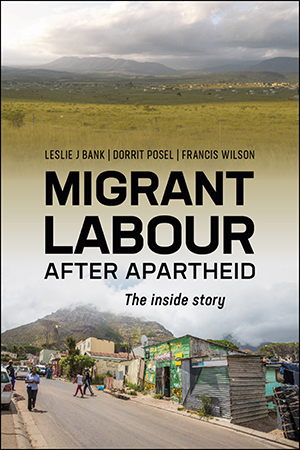Leslie J Bank, Dorrit Posel, and Francis Wilson, eds.
A large portion of South Africa's population remains double rooted—many South Africans live in an urban area, but also have access to a rural homestead to which they periodically return and often retire. The authors of Migrant Labour After Apartheid explore this rural-urban reality, showing that internal migrancy continues to have profound impacts on social cohesion, family life, gender relations, household investment, settlement dynamics, and the formation of political identity.
Leslie J Bank is deputy executive director of the Human Sciences Research Council's Economic Performance and Development Program. Dorrit Posel is distinguished professor in the School of Economic and Business Sciences at the University of Witwatersrand. Francis Wilson is emeritus professor of economics at the University of Cape Town.
"This book is a pioneering effort to advance [the] understanding of enduring circular labour migrancy. Its originality, depth, and clarity make it required reading for those in universities, government, business, and civil society who wish to address this socially entrenched, yet constantly changing, feature of South African society."—Alan Mabin, University of Witswatersrand








